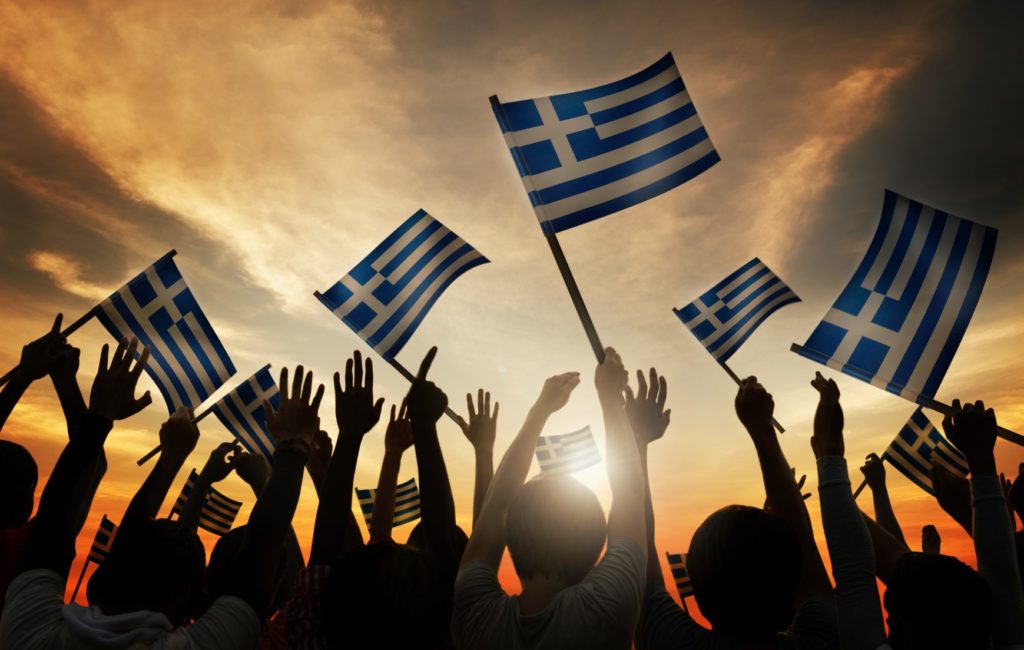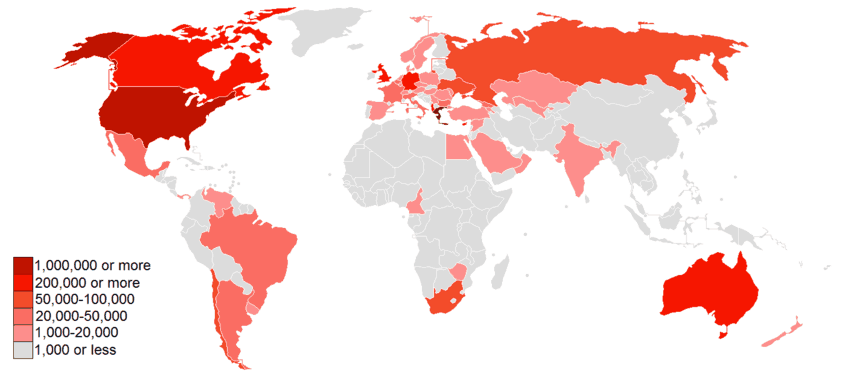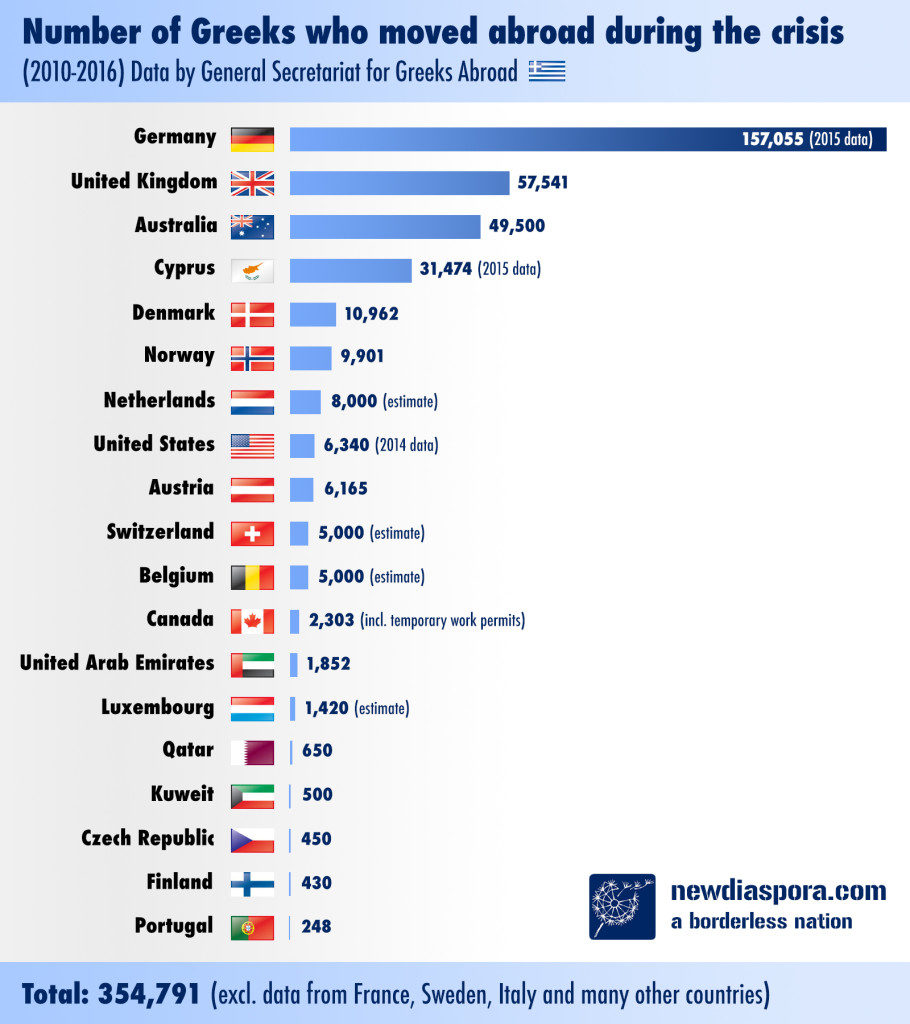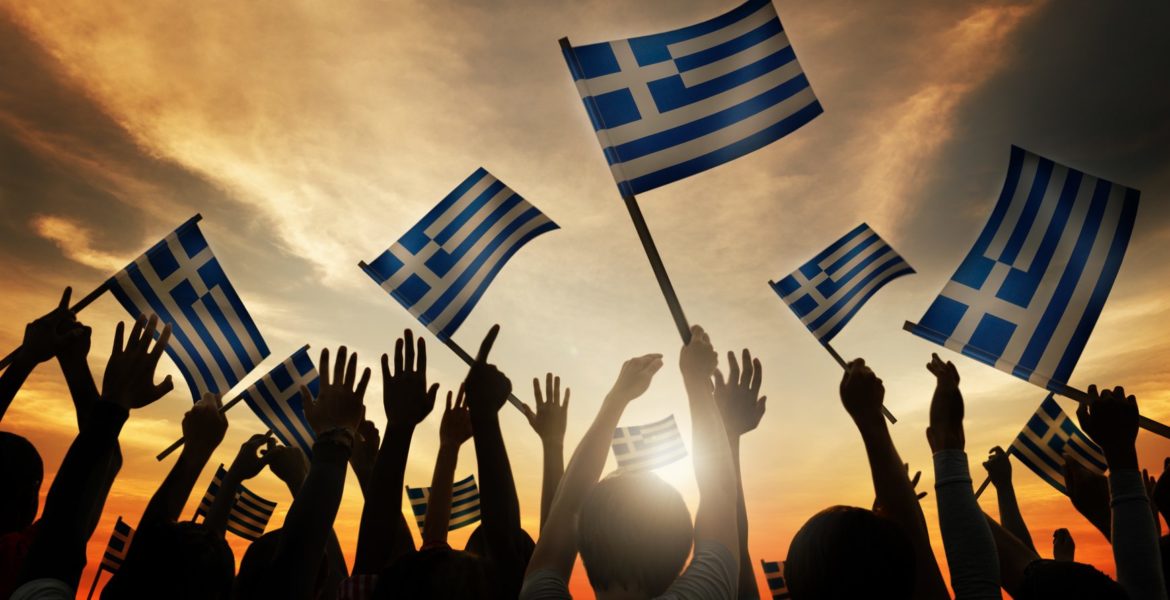
Since time immemorial, Greeks have been wanderers and travellers, like Homer's Odysseas, venturing bravely through foreign seas and lands, motivated by trade, science, curiosity, poverty or war, creating colonies and cities wherever fate found them. As a result, the Greek diaspora became one of the oldest and largest in the world, spread across the entire globe.
Greeks have traded and colonised the Mediterranean basin since 800 BC, from Sicily, Libya, Spain, and France to the Black Sea to Asia and Africa, founding more than 400 colonies not to mention the spread of more Greek cities and Greek culture via Alexander the Great's conquest of Asia.
With the fall of the Byzantine Empire to the Ottoman Turks, we saw the exodus of intellectuals and artists that sought refuge in Italy, in cities like Venice, Florence, and Rome and bringing with them a cultural heritage that contributed greatly to the Renaissance.
Since the fall of Constantinople and thereafter it was largely the tribulations of war and poverty that would motivate Greeks to leave their homeland and venture into foreign lands, as immigrants.
As such, the Greek diaspora grew significantly and by the twentieth century had reached as far as Australia and New Zealand.
The Greek diaspora can be found almost everywhere in the world, with significant numbers in the United States, Australia, Canada, Brazil, the United Kingdom, New Zealand, Argentina, Germany, the United Arab Emirates, Singapore, Belgium, Georgia, Italy, Armenia, Russia, Chile, Mexico and South Africa.
Judging by government statistics and census reports from around the world it is estimated that the Greek diaspora, including 2nd, 3rd generations of Greek ancestry not born in Greece, is between 4 - 5 million.

[Map showing the countries with the largest Greek populations]
Of course one might ask how do you define who is a Greek? Especially given that often that sense of identity and culture, often gets diluted and eventually runs the risk of evaporating over time and distance. Additionally, claiming Greek ancestry is not the same thing as Greek nationality or Greek citizenship.
According to the Greek State, "a person acquires Greek nationality at the time of birth if he/she is born to a parent of Greek nationality. A Greek citizen is a person who is duly registered in the Records of a Municipality of the Hellenic Republic.
The Financial Crisis
In modern history, most Greeks immigrated to foreign lands to seek a better future, in the early to mid-twentieth century. However, the recent global financial crisis and the crippling consequences it had for Greece, saw a new wave of Greeks leaving the country as economic migrants.

[table: New Diaspora]
A report by the bank of Greece in 2016, estimated that since 2008, more than 350,000 Greeks had left the country. For a country with an estimated population of only 11 million people, this figure is alarming.
by Alex Constantine


